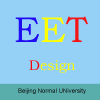-
Distance learning essentials
普通类 -
- 支持
- 批判
- 提问
- 解释
- 补充
- 删除
-
-
Distance Learning Essentials
KNOWING BASIC DISTANCE LEARNING ESSENTIALS before committing to a distance learning program will help the learner avoid some of the pitfalls of the information age. By following five essential study tips (adapted from Petersons.com), first-time distance learners as well as seasoned veterans can better prepare for the challenge of tackling this progressive and popular educational endeavor.
-
The Essentials
Before enrolling in a distance education course, students need to take into account the essentials they will need in order to successfully complete the course.
The five essential study tips for successful distance learning fall into the categories of equipment, scheduling, where to study, reading and writing skills, and communication skills.-
Equipment
Probably the most important consideration for online distance learning is the speed of the user's connection to the Internet. To fully benefit from the vast amount of audio, video, and graphical content, investment in a broadband connection will make studying faster, more enjoyable, and more productive.
.jpg)
Other equipment essential to this type of learning would be a relatively new computer with the necessary software (especially a good word processor, adequate hard disk space and RAM, and updated Web browsers and plug-ins). Having access to and knowing how to use and program a VCR and a fax machine may also be necessary. A distance learner must also take into account any other components (modems, microphones, speakers) or new software needed and how long it will take to learn how to use them and how long it will take to get any textbooks that need to be ordered.
-
Scheduling
Time management may be the most overlooked aspect of distance learning. Usually, there are no set times for lessons so it is up to the student to set aside time for studying. This should include a regularly scheduled time when the student is mentally prepared and can devote the required amount of time to the lesson and the work without being disturbed. Being flexible may lead to too many missed study opportunities. If this is the case, a revision of the schedule is necessary.
-
Where to Study
Finding correct and suitable circumstances for studying is important. Distractions prevent students from acquiring necessary knowledge. The distance-learning student should choose a place such as a quiet room in the student's house, the library, or even the student's work place, before or after working hours. It is important for the student to be able to devote enough time free from distractions to complete the necessary studying. Interruptions causing the student to start and stop should be avoided at all costs during the study session. Suggestions would be to unplug the telephone, have any CDs or tapes chosen and organized beforehand for quick changing of soft background music, and keep the television in a separate.
-
Reading and Writing Skills
Reviewing what has been read immediately after reading it will help the student retain what has been read. Create reading summarization review sheets to keep track of such things as main points, how these points are tested, how persuasive the article is, and the reader's general opinions on the material. These reading summarization sheets should be filled out for each chapter, lesson, or book, or as often as the student feels necessary. Remember, too, computer screens can strain the eyes. Students should consider printing online text for easier reading at another time or place.
.jpg)
When writing, the student should be sure to backup all files on something other than just a hard disk, use spell checkers and grammar checkers with regularity, and understand how to set up word processor settings and preferences to facilitate better writing skills.
-
Communication Skills
Good communication skills start with paying close attention to the instructions and understanding what is being asked. Students should get to the point and stay on the topic; don't clutter listserves and e-mails with unrelated ramblings. Writing out a brief outline, if time permits, before replying to questions will help. Correct grammar, good style, and good organization are important.
.jpg)
-
References and More Information
Click here for an overview of online learning from Petersons.com
Click here to assess your distance learning suitability from Petersons.com
Click here for access to the study guides of the University of St. Thomas, St. Paul, Minnesota, USA
Click here for a look at distance education at a glance from the University of Idaho
If you think your Internet connection feels sluggish, it may be. Check out these sites to test your bandwidth speed:
http://computingcentral.msn.com/Internet/speedtest.asp
http://webservices.cnet.com/bandwidth/
http://www.bandwidthspeedtest.com/speedtest-
Author
Tony Brunelli, Tokoha Gakuen University, Shizuoka, Japan
-
-
- 标签:
- study
- distance
- student
- writing
- necessary.
- essentials
- reading
- students
- http
- online
- learning
-
加入的知识群:



学习元评论 (0条)
聪明如你,不妨在这 发表你的看法与心得 ~